Milwaukee230 West Wells Street - Suite 706 Tel - 414.207.4426 |
Madison403 Venture Court - Suite 2 Tel - 608.320.6710 |
Schedule 1 Drugs in Wisconsin
961.14 Schedule I. Unless specifically excepted by state or federal law or regulation or more specifically included in another schedule, the following controlled substances are listed in schedule I:
(2) Synthetic opiates. Any material, compound, mixture or preparation which contains any quantity of any of the following synthetic opiates, including any of their isomers, esters, ethers, esters and ethers of isomers, salts and salts of isomers, esters, ethers and esters and ethers of isomers that are theoretically possible within the specific chemical designation:
(a) Acetyl-alpha-methylfentanyl (N-[1-(1-methyl-2- phenylethyl)-4-piperidinyl]-N-phenylacetamide);
(ag) Acetylmethadol;
(am) Allylprodine;
(b) Alphacetylmethadol (except levo-alphacetylmethadol (LAAM));
(bm) Alphameprodine;
(c) Alphamethadol;
(cd) Alpha-methylfentanyl (N-[1-(1-methyl-2-phenylethyl)-4-piperidinyl]-N-phenylpropanamide);
(cg) Alpha-methylthiofentanyl (N-{1-[1-methyl-2-(2-thienyl)ethyl]-4-piperidinyl}-N-phenylpropanamide);
(cm) Benzethidine;
(d) Betacetylmethadol;
(dg) Beta-hydroxyfentanyl (N-[1-(2-hydroxy-2-phenylethyl)-4-piperidinyl]-N-phenylpropanamide);
(dm) Betameprodine;
(e) Betamethadol;
(em) Betaprodine;
(er) Beta-hydroxy-3-methylfentanyl (N-[1-(2-hydroxy- 2-phenylethyl)-3-methyl-4-piperidinyl]-N-phenylpropanamide);
(f) Clonitazene;
(fm) Dextromoramide;
(gm) Diampromide;
(h) Diethylthiambutene;
(hg) Difenoxin;
(hm) Dimenoxadol;
(j) Dimepheptanol;
(jm) Dimethylthiambutene;
(k) Dioxaphetyl butyrate;
(km) Dipipanone;
(m) Ethylmethylthiambutene;
(mm) Etonitazene;
(n) Etoxeridine;
(nm) Furethidine;
(p) Hydroxypethidine;
(pm) Ketobemidone;
(q) Levomoramide;
(qm) Levophenacylmorphan;
(qs) 3-methylfentanyl (N-[3-methyl-1-(2-phenylethyl)-4- piperidinyl]-N-phenylpropanamide);
(r) Morpheridine;
(rg) MPPP (1-methyl-4-phenyl-4-propionoxypiperidine);
(rj) 3-methylthiofentanyl (N-{3-methyl-1-[2-(2-thienyl)ethyl]-4-piperidinyl}-N-phenylpropanamide);
(rm) Noracymethadol;
(s) Norlevorphanol;
(sm) Normethadone;
(t) Norpipanone;
(tg) Para-fluorofentanyl (N-[1-(2-phenylethyl)-4-piperidinyl]-N-(4-fluorophenyl)propanamide);
(tm) Phenadoxone;
(u) Phenampromide;
(um) Phenomorphan;
(v) Phenoperidine;
(vg) PEPAP (1-(2-phenylethyl)-4-phenyl-4-acetoxypiperidine);
(vm) Piritramide;
(w) Proheptazine;
(wm) Properidine;
(wn) Propiram;
(x) Racemoramide;
(xm) Thiofentanyl (N-{1-[2-(2-thienyl)ethyl]-4-piperidinyl}-N-phenylpropanamide);
(xr) Tilidine;
(y) Trimeperidine.
(3) Substances derived from opium. Any material, compound, mixture or preparation which contains any quantity of any of the following substances derived from opium, including any of their salts, isomers and salts of isomers that are theoretically possible within the specific chemical designation:
(a) Acetorphine;
(b) Acetyldihydrocodeine;
(c) Benzylmorphine;
(d) Codeine methylbromide;
(e) Codeine-N-oxide;
(f) Cyprenorphine;
(g) Desomorphine;
(h) Dihydromorphine;
(hm) Drotebanol;
(j) Etorphine, except its hydrochloride salts;
(k) Heroin;
(m) Hydromorphinol;
(n) Methyldesorphine;
(p) Methyldihydromorphine;
(q) Morphine methylbromide;
(r) Morphine methylsulfonate;
(s) Morphine-N-oxide;
(t) Myrophine;
(u) Nicocodeine;
(v) Nicomorphine;
(w) Normorphine;
(x) Pholcodine;
(y) Thebacon.
(4) Hallucinogenic substances. Any material, compound, mixture or preparation which contains any quantity of any of the following hallucinogenic substances, including any of their salts, isomers, precursors, analogs, esters, ethers, and salts of isomers, esters, or ethers that are theoretically possible within the specific chemical designation, in any form contained in a plant, obtained from a plant, or chemically synthesized:
(a) 3,4-methylenedioxyamphetamine, commonly known as "MDA";
(ag) 3,4-methylenedioxyethylamphetamine, commonly known as "MDE";
(am) 3,4-methylenedioxymethamphetamine, commonly known as "MDMA";
(ar) N-hydroxy-3,4-methylenedioxyamphetamine;
(b) 5-methoxy-3,4-methylenedioxyamphetamine;
(bm) 4-ethyl-2,5-dimethoxyamphetamine, commonly known as "DOET";
(c) 3,4,5-trimethoxyamphetamine;
(cm) Alpha-ethyltryptamine;
(d) Bufotenine;
(e) Diethyltryptamine;
(f) Dimethyltryptamine;
(g) 4-methyl-2,5-dimethoxyamphetamine, commonly known as "STP";
(h) Ibogaine;
(j) Lysergic acid diethylamide, commonly known as "LSD";
(m) Mescaline, in any form, including mescaline contained in peyote, obtained from peyote or chemically synthesized;
(mn) Parahexyl (3-hexyl-1-hydroxy-7, 8, 9, 10-tetrahydro-6, 6, 9-trimethyl-6H-dibenzo(b, d)pyran);
(n) Phencyclidine, commonly known as "PCP";
(p) N-ethyl-3-piperidyl benzilate;
(q) N-methyl-3-piperidyl benzilate;
(r) Psilocybin;
(s) Psilocin;
(t) Tetrahydrocannabinols, commonly known as "THC", in any form including tetrahydrocannabinols contained in marijuana, obtained from marijuana or chemically synthesized;
(tb) Cannabicyclohexonal: 2-[(1R,3S)-3-hydroxycyclohexyl]-5-(2-methylnonan-2-yl)phenol.
(te) CP47,497 and homologues: 2-[(1R,3S)-3-hydroxycyclohexyl]-5-(2-methyloctan-2-yl)phenol.
(th) HU-210: [(6aR,10aR)-9-(hydroxymethyl)-6,6-dimethyl-3-(2-methyloctan-2-yl)-6a,7,10, 10a-tetrahydrobenzo[c]chromen-1-o1)], also known as (6aR,10aR)-3-(1,1-dimethylheptyl)-6a,7,10,10a-tetrahydro-1-hydroxy-6,6-
(th) HU-210: [(6aR,10aR)-9-(hydroxymethyl)-6,6-dimethyl-3-(2-methyloctan-2-yl)-6a,7,10, 10a-tetrahydrobenzo[c]chromen-1-o1)], also known as (6aR,10aR)-3-(1,1-dimethylheptyl)-6a,7,10,10a-tetrahydro-1-hydroxy-6,6-
dimethyl-6H-dibenzo[b,d]pyran-9-methanol.
(tL) JWH-018: 1-pentyl-3-(1-naphthoyl)indole, also known as Naphthalen-1-yl-(1-pentylindol-3-yl)methanone.
961.14(4)(tp) (tp) JWH-073): 1-butyl-3-(1-naphthoyl)indole, also known as Naphthalen-1-yl-(1-butylindol-3-yl)methanone.
(tr) JWH-081: 1-pentyl-3-(4-methoxy-1-naphthoyl)indole, also known as 4-methoxynaphthalen-1-yl-(1-pentylindol-3-yl)methanone.
(tu) JWH-200: 1-[2-(4-morpholinyl)ethyl]-3-(1-naphthoyl)indole.
(ty) JWH-250: 1-pentyl-3-(2-methoxyphenylacetyl)indole, also known as 2-(2-methoxyphenyl)-1-(1-pentylindol-3-yl)ethanone.
(u) 1-[1-(2-thienyl)cyclohexyl]piperidine, which is the thiophene analog of phencyclidine;
(ud) 1-[1-(2-thienyl)cyclohexyl]pyrrolidine, which is the thiophene pyrrolidine analog of phencyclidine;
(ug) N-ethyl-1-phenylcyclohexylamine, which is the ethylamine analog of phencyclidine;
(ur) 1-(1-phenylcyclohexyl)pyrrolidine, which is the pyrrolidine analog of phencyclidine;
(v) 2,5-dimethoxyamphetamine;
(w) 4-bromo-2,5-dimethoxyamphetamine, commonly known as "DOB";
(wg) 4-bromo-2,5-dimethoxy-beta-phenylethylamine, commonly known as "2C-B" or "Nexus";
(wgm) 4-iodo-2,5-dimethoxy-beta-phenylethylamine, commonly known as "2C-I".
(wh) 2,5 dimethoxy-4-(n)-propylthiophenethylamine, commonly known as "2C-T-7";
(wi) Alpha-methyltryptamine, commonly known as "AMT";
(wj) 5-methoxy-N, N-diisopropyltryptamine, commonly known as "5-MeO-DIPT";
(x) 4-methoxyamphetamine, commonly known as "PMA."
(5) Depressants. Any material, compound, mixture or preparation which contains any quantity of any of the following substances having a depressant effect on the central nervous system, including any of their salts, isomers and salts of isomers that are theoretically possible within the specific chemical designation:
(ag) Gamma-hydroxybutyric acid (commonly known as gamma hydroxybutyrate or "GHB"), gamma-butyrolactone, and 1,4-butanediol.
(am) Mecloqualone.
(b) Methaqualone.
(6) Immediate precursors. Any material, compound, mixture or preparation which contains any quantity of any of the following substances or their salts:
(a) Immediate precursors to phencyclidine:
1. 1-phenylcyclohexylamine.
2. 1-piperidinocyclohexanecarbonitrile.
(7) Stimulants. Any material, compound, mixture or preparation which contains any quantity of any of the following substances having a stimulant effect on the central nervous system, including any of their precursors, analogs, salts, isomers and salts of isomers that are theoretically possible within the specific chemical designation:
(ag) Cathinone.
(am) Aminorex.
(b) Fenethylline.
(c) N-ethylamphetamine.
(d) 4-methylaminorex.
(e) N,N-dimethylamphetamine.
(L) Methcathinone.
(m) Methylenedioxypyrovalerone, commonly known as "MDPV."
(n) 4-methylmethcathinone, commonly known as "mephedrone" or "4-MMC."
(p) 4-methylthioamphetamine, commonly known as "4-MTA."
(q) N- benzylpiperazine, commonly known as "BZP."
History: 1971 c. 219; 1981 c. 206; CSB 2.16, 2.15, 2.17, 2.18, 2.19, 2.20; 1989 a. 121; CSB 2.21; 1993 a. 98, 118; CSB 2.22; 1995 a. 225; 1995 a. 448 ss. 157 to 165; Stats. 1995 s. 961.14; 1997 a. 220; 1999 a. 21; 2001 a. 16; 2005 a. 52; CSB 2.31, 2.32, 2.33, 2.34; 2011 a. 31; s. 35.17 correction in (4) (wgm).
NOTE: See 1979-80 Statutes and 1993-94 Statutes for notes on actions by controlled substances board under s. 161.11 (1), 1993 Stats.
A chemical test need not be specifically for marijuana in order to be probative beyond a reasonable doubt. State v. Wind, 60 Wis. 2d 267, 208 N.W.2d 357 (1973).
THC is properly classified as Schedule I substance. State v. Olson, 127 Wis. 2d 412, 380 N.W.2d 375 (Ct. App. 1985).
Stems and branches supporting marijuana leaves or buds are not "mature stalks" under sub. (14). State v. Martinez, 210 Wis. 2d 396, 563 N.W.2d 922 (Ct. App. 1997), 96-1899.
